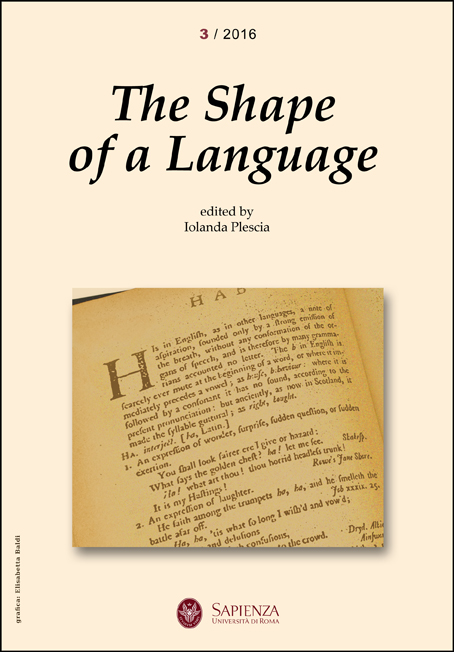Rome Desired; Or, the Idea of Rome
Abstract
The title of this paper explicitly recalls Tony Tanner’s Venice Desired, a book which explores Venice, a city unique in so many ways, in terms of its special – indeed, unique – relationship to writing. Whilst in Wilson Knight’s penetrating study, “The Eroticism of Julius Caesar”, Caesar and Rome are drawn as requited lovers, for Brutus Rome is less an object of desire and more the manifestation of an idea: an idea and an ideal. The subject of this paper, then, will be not Rome desired – in Italian, “il desiderio di Roma”; but rather, the idea of Rome, or Rome as ideal – “l’idea di Roma”, focusing on a very ‘idealistic’ hero: Brutus. Certainly, in its own way, the play aims to establish its own peculiarly Roman identity: the Elizabethan audience is instructed to feel the distance, not to conceive of the events on stage as happening in a thinly-disguised England. But the audience can also recognise a central question that constantly recurs in Shakespeare’s plays: the question of power, a question of heredity and inheritance, by no means a straightforward issue in a patriarchal society.
Keywords: Shakespeare, Julius Caesar, Hamlet, Brutus, Shakespeare’s Rome, Roman identity, power, heritage


